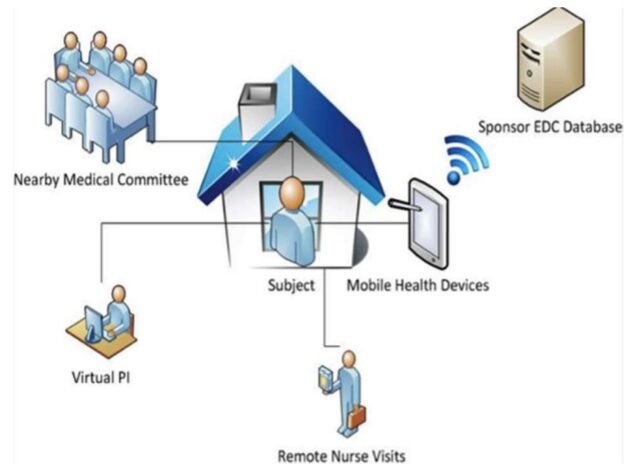Clinical trials are the foundation of effective drug development. They are critical in establishing the impacts of a drug before being declared safe for mass usage. In this case, they provide scientific proof that a drug is efficient in accomplishing a specific function. Over the past few years, there has been a steady transformation in Veristat clinical trials. That means traditional trials are used in addition to virtual research trials. That also means there’s increasing use of new techniques like digital health technologies during clinical trials. For that reason, virtual trials play a significant role in today’s clinical research.
Technology in Clinical Studies
The sole function of virtual clinical trials is to allow for remote clinical research to take place. Also, it means the whole process is web-based. That means the research participants can take part in the trial from the comfort of their homes instead of physical presence in research sites like in conventional trials. As a result, virtual trials have opened the doors to reaching out to potential and qualified participants worldwide by using digital health technologies. The digital techniques include mobile apps, mobile devices, social platforms like Facebook, and finally, remote monitoring devices. These technologies are used to gather information at different stages of the clinical trial.
Virtual patient recruitment
The recruitment stage involves signing up on specific websites or apps where the participants provide their credentials. This can be through answering questionnaires about their geographical locations, history of diseases, and other relevant details concerning the trials. This type of recruitment beats geographical barriers. It also gains access to those living far from the research site or those who entirely can’t access it physically. After the recruitment, the research is monitored online. This kind of monitoring makes virtual trials super effective since they facilitate in-depth data collection, which results from real-time tracking of the research participants.
Data collection in virtual trials
Unlike in conventional clinical trials, where data is only collected during the periodic visits to the site, real-time monitoring facilitates the continuous collection of information about the research. Consequently, virtual trials provide solid and informed conclusions to the researchers, enhancing accuracy in drug development. What’s more, virtual trials are excellent in engaging the research participants. Plus it helps in retaining them from the beginning of the trial to the end.
Patient engagement during the trial process
This stems from the fact that the patients are participating from the convenience of their homes, making it easier to complete the trials. They don’t have to travel to and from the research site every now and then. This is also what makes virtual trials cost-effective for the participants. Again, since virtual trials help engage the participants, it means you can have fast result generation in the trials. Therefore, the drug test can be completed fast for approval by the relevant body.
All in all, remote clinical studies as a part of virtual trials come with lots of benefits. They help eliminate geographical barriers, enhance real-time monitoring, and even keep the research participants engaged throughout the study process. Thus speeding up the trials and generating accurate data.

